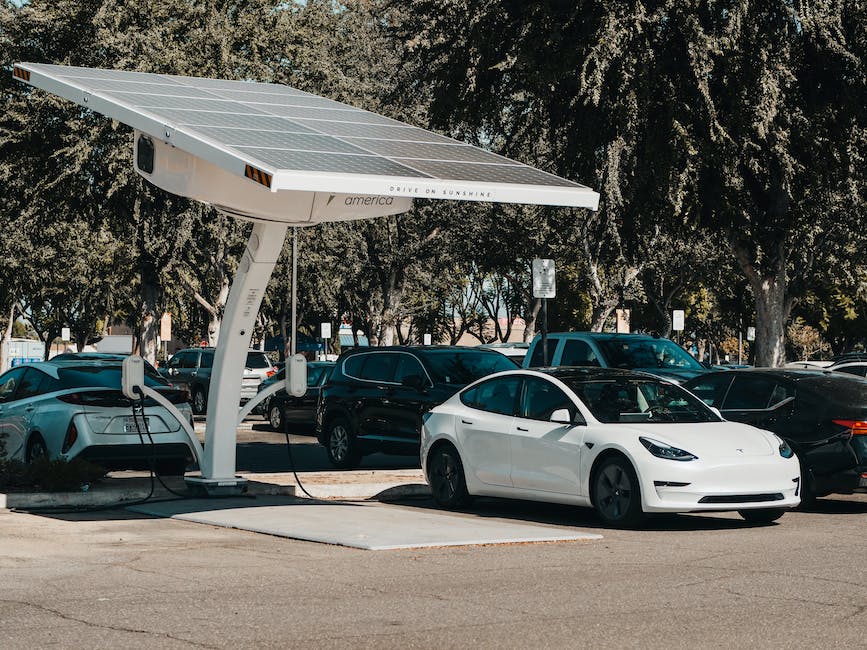The Pros and Cons of Electric Cars
Exploring the Benefits and Drawbacks of Electric Vehicles
Electric cars have gained significant attention as an environmentally friendly alternative to traditional gasoline-powered vehicles. The surge in interest is due to their potential to reduce carbon emissions and dependence on fossil fuels. However, electric cars come with their own set of advantages and disadvantages. This article delves into the pros and cons of electric cars to provide a comprehensive understanding of their impact on the environment, energy consumption, and daily usability.
As the automotive industry continues to innovate, electric cars have emerged as a promising solution to address climate change and air pollution. With technological advancements and government initiatives, electric vehicles are becoming more accessible to consumers. Despite their growing popularity, it's essential to weigh the benefits and drawbacks before making the switch to electric cars.
Pros
Electric cars offer numerous benefits that cater to environmental consciousness, cost savings, and driving experience. Explore the advantages below to gain insight into the positive aspects of embracing electric vehicles.
Environmental Impact
One of the most significant advantages of electric cars is their minimal environmental impact. These vehicles produce zero tailpipe emissions, thereby reducing air pollution and contributing to improved air quality. By transitioning to electric vehicles, individuals can actively participate in reducing greenhouse gas emissions and combatting climate change.
Cost Savings
Electric cars present an opportunity for long-term cost savings. With lower fuel and maintenance expenses compared to conventional vehicles, owners can experience reduced operational costs over the vehicle's lifespan. Additionally, government incentives and tax credits for electric vehicle adoption can further enhance financial benefits for consumers.
Driving Experience
The driving experience offered by electric cars is notably smooth and quiet. Instant torque delivery from electric motors results in responsive acceleration, providing a unique and enjoyable driving experience. Furthermore, the absence of a traditional combustion engine eliminates engine noise, contributing to a quieter and more serene driving environment.
Energy Efficiency
Electric cars are inherently more energy-efficient than internal combustion engine vehicles. The conversion of electricity to power in electric vehicles is more efficient than burning gasoline or diesel in traditional vehicles. This efficiency translates to reduced energy consumption and decreased reliance on finite fossil fuel resources.
Government Incentives
One of the biggest advantages of electric cars is the availability of government incentives and tax credits. Many governments offer financial incentives to encourage the purchase of electric vehicles, such as rebates, tax credits, or exemptions from certain taxes. These incentives can significantly reduce the upfront cost of buying an electric car, making them more affordable for consumers.
Low Maintenance
Electric cars have fewer moving parts compared to traditional internal combustion engine vehicles, leading to lower maintenance costs. With no need for oil changes, tune-ups, or exhaust system repairs, electric car owners can save time and money on maintenance. Additionally, electric motors typically have longer lifespans and require less frequent servicing.
Missing a pro?
Let us know which pro you are missing!
Cons
While electric cars offer compelling advantages, they also pose certain challenges and limitations that can influence consumer decision-making. Understanding the disadvantages is crucial for making an informed choice regarding electric vehicle adoption.
Charging Infrastructure
A notable drawback of electric cars is the current limitation in charging infrastructure. Although the network of charging stations is expanding, it remains less extensive than the widespread availability of gasoline stations. Range anxiety, or the fear of running out of charge, may deter potential electric car owners, particularly for long-distance travel.
Battery Technology
The reliance on battery technology in electric cars introduces concerns related to battery life, degradation, and recycling. Lithium-ion batteries, commonly used in electric vehicles, face challenges such as capacity deterioration over time and the environmental impact of battery disposal. Developing advanced and sustainable battery solutions is essential to mitigate these concerns.
Upfront Costs
Electric cars often come with a higher upfront purchase cost compared to traditional gasoline vehicles. While long-term operational savings exist, the initial investment for an electric vehicle can deter budget-conscious consumers. However, ongoing technological advancements and market competition are gradually reducing the price gap between electric and conventional cars.
Limited Model Options
The diversity of electric vehicle models in the market is comparatively narrower than that of conventional vehicles. This limitation in options may restrict consumer preferences based on vehicle size, performance, and features. As electric car technology continues to evolve, expansion in model variety is anticipated to address this constraint.
Range Anxiety
One of the primary concerns for potential electric car buyers is range anxiety. Despite advancements in battery technology, many electric cars still have limited driving ranges on a single charge compared to gasoline-powered vehicles. Range anxiety refers to the fear of running out of battery power before reaching a charging station, especially during long journeys. While the charging infrastructure is improving, range anxiety remains a significant drawback for some consumers.
Depreciation Concerns
Electric cars may depreciate at a faster rate compared to traditional vehicles, primarily due to rapid advancements in electric vehicle technology. As newer models with longer ranges and improved features enter the market, older electric cars may lose value more quickly. Additionally, uncertainties about the long-term durability and performance of electric vehicle batteries can contribute to concerns about depreciation, potentially impacting resale values.
Missing a con?
Let us know which con you are missing!
Conclusion
Electric cars present a compelling solution to curb emissions and promote sustainable transportation. While they offer significant environmental benefits and long-term cost savings, challenges related to infrastructure, battery technology, upfront costs, and model variety influence their widespread adoption. As innovation in electric vehicle technology continues, addressing these limitations will play a crucial role in accelerating the transition to electric mobility.
What do you think?
Do you think the pros outweigh the cons?









